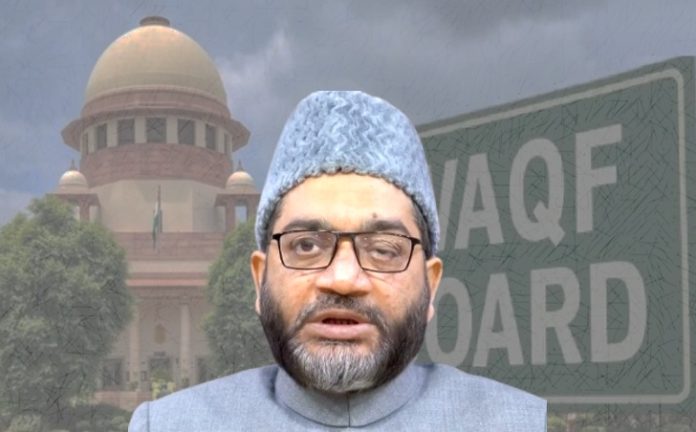New Delhi: Jamaat-e-Islami Hind (JIH) has welcomed the Supreme Court’s interim order on the Waqf (Amendment) Act 2025, describing it as a step that curbs executive overreach and exposes major constitutional flaws in the law. JIH President Syed Sadatullah Husaini said the order validated long-standing concerns of the community, though several contentious provisions still need to be addressed in the final judgment.
Husaini noted that the court has restrained authorities from treating Waqf properties as government land without judicial review. He said this upheld the principle of separation of powers by striking down the sweeping authority earlier vested in Collectors and designated officers. “The court’s order is a rebuke to undue interference in Waqf management,” he said.
The JIH President also welcomed the suspension of the clause requiring proof of five years of Islamic practice before establishing a Waqf. He called it discriminatory and impractical, stressing that the stay reinforced constitutional guarantees of equality.
On property disputes, Husaini said the order prevents arbitrary dispossession by barring authorities from altering revenue records or derecognising Waqf properties during ongoing cases. He underlined that this safeguard protects the community’s right to manage its religious endowments until a tribunal or court delivers a verdict.
Despite these protections, Husaini cautioned that the abolition of “Waqf by user” remains a serious threat. He explained that thousands of mosques, graveyards and Eidgahs across India were established without formal deeds and are now at risk. “In a country where countless institutions of all communities exist without documentation, the principle of Waqf by user is essential,” he said.
He also criticised the short deadline set for registration of all Waqfs, describing it as unrealistic for a vast and diverse country. According to him, this requirement will result in harassment and exclusion of many genuine Waqfs, particularly in rural and undocumented areas.
On the restriction placed by the court on the number of non-Muslim members in Waqf institutions, Husaini said the provision itself was discriminatory. He argued that forcing non-Muslim members into Waqf Boards implies mistrust of the community and unfairly targets Muslim institutions, unlike those of other faiths.
Husaini concluded that while the interim order has brought relief, the larger legal and democratic struggle will continue. He urged the government to withdraw the amendment in light of constitutional principles and the community’s concerns.




